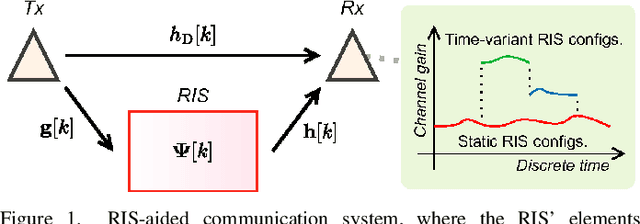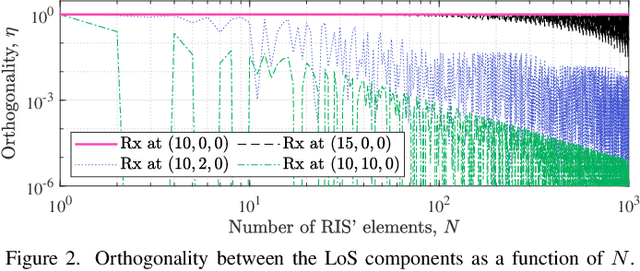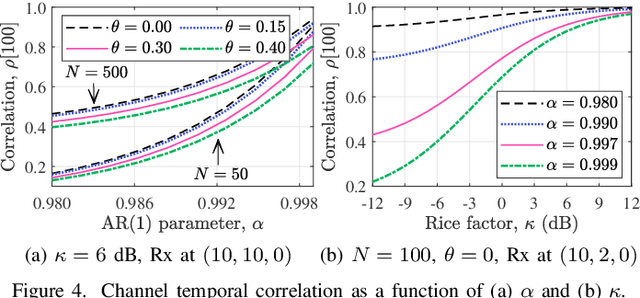João Henrique Inacio de Souza
Uplink Multiplexing of eMBB/URLLC Services Assisted by Reconfigurable Intelligent Surfaces
May 08, 2023Abstract:Reconfigurable intelligent surfaces (RISs) with their potential of enabling a programmable environment comprise a promising technology to support the coexistence of enhanced mobile broadband (eMBB) and ultra-reliable-low-latency communication (URLLC) services. In this paper, we propose a RIS-assisted scheme for multiplexing hybrid eMBB-URLLC uplink traffic. Specifically, the scheme relies on the computation of two RIS configurations, given that only eMBB channel state information (CSI) is available. The first configuration optimizes the eMBB quality of service, while the second one mitigates the eMBB interference in the URLLC traffic. Analyzing the outage probability achieved by the scheme, we demonstrate that a RIS can improve the reliability of URLLC transmissions even in the absence of URLLC CSI.
Randomized Control of Wireless Temporal Coherence via Reconfigurable Intelligent Surface
Jan 31, 2023



Abstract:A reconfigurable intelligent surface (RIS) can shape the wireless propagation channel by inducing controlled phase shift variations to the impinging signals. Multiple works have considered the use of RIS by time-varying configurations of reflection coefficients. In this work we use the RIS to control the channel coherence time and introduce a generalized discrete-time-varying channel model for RIS-aided systems. We characterize the temporal variation of channel correlation by assuming that a configuration of RIS' elements changes at every time step. The analysis converges to a randomized framework to control the channel coherence time by setting the number of RIS' elements and their phase shifts. The main result is a framework for a flexible block-fading model, where the number of samples within a coherence block can be dynamically adapted.
 Add to Chrome
Add to Chrome Add to Firefox
Add to Firefox Add to Edge
Add to Edge